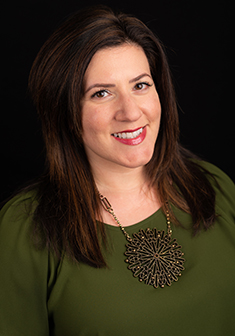Accessibility in Aggieland
On-demand sessions
Webinars were held via zoom and recorded.
March 22, 2023
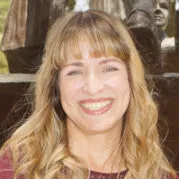
Aimee Ortiz-Day
Program Coordinator, Center on Disability & Development, Texas A&M University
Email: aday@tamu.edu
Aimee Ortiz-Day is a certified Person Centered Thinking Trainer and Program Coordinator at the Center on Disability and Development at Texas A&M University (CDD.) She manages several programs that support person centered planning, increase self-advocacy skills and promote the inclusion of individuals with disabilities in their communities.
She is the mother of two young men with disabilities who are adventurous, funny, and kind. Her career took a shift in direction from Veterinary Medicine to supporting families and individuals with disabilities after her youngest son was diagnosed with autism in 2008.
Aimee credits Person Centered Thinking for the growth that she has seen in her son’s ability to advocate for himself at school. He participates in his IEP meetings and shares his future goals with his team so that they are all working together to help him reach his vision of a good life.
Accessibility in Canvas: Using the Canvas-integrated Ally program
November 2, 2022
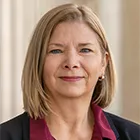
Sally Hughes
Manager, Instructional Design
Center for Teaching Excellence, Texas A&M University
View Directory Profile
Dr. Sally Hughes’ has spent more than three decades in the field of education and has served as a K-12 educator, instructional designer, program developer, professional development specialist, faculty member, and project manager.
She has served in Texas school districts, Texas A&M University, Blinn College, the Texas Higher Education Coordinating Board, and currently as the Manager, Instructional Design in TAMU’s Office for Academic Innovation. Her work focuses specifically on digital accessibility in learning. She received her B.S. in Education from University of Texas, her M.Ed. in Educational Technology from Texas A&M University, and her Ed.D. in Educational Leadership from Lamar University.
She also holds a Certificate in Digital Accessibility Specialization from the Texas Digital Learning Association, and her interests include digital learning environments, quality assurance, digital accessibility, and professional development in these areas.
Outside of her work, Sally enjoys gardening, do-it-yourself home improvement projects, traveling, and spending time outside. She is married to a fellow educator, and they have two adult sons and a new granddaughter.
Bottom-Line Benefits of Vocational Rehabilitation Services
October 26, 2022

Jonathan Mize
Business Relations Coordinator program specialist, Texas Workforce Solutions Vocational Rehabilitation Services (TWS-VRS)
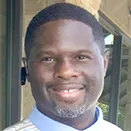
Arthur Jones
Business Relations Coordinator
About Jonathan: Jonathan Mize currently works as a Business Relations Coordinator program specialist for Texas Workforce Solutions Vocational Rehabilitation Services (TWS-VRS) in Waco serving customers in the Heart of Texas, Central Texas, the Capital area, the Rural Capital area, and the Brazos Valley workforce board areas as part of region III Central Texas.
He has over 25 years of work experience with a variety of public sector agencies that include the Texas Workforce Commission, the former legacy Department of Assistive and Rehabilitative Services agency, legacy Texas Commission for the Blind, & Texas Rehabilitation Commission organizations that includes work as a Vocational Rehabilitation Counselor for DARS-Division for Rehabilitation Services, Transition Counselor for the Texas Commission for the Blind covering the Fort Worth, Abilene, and San Angelo areas and work as an Employment Assistance Specialist for the Texas Commission for the Blind. Mr. Mize is also a former advisory board member for the Brazos Valley Center on Disability and Development coordinated through Texas A&M University (2008-2010 and a former Bridge to Careers advisory board member with Texas A and M University from 2012-2016. Mr. Mize currently is a Certified Rehabilitation Counselor credentialed for over 25 years and is an Advanced Communicator with Toastmasters International.
Mr. Mize is a Texas panhandle native, born in Canyon, and a graduate of Pampa High School. Mr. Mize has celebrated 24 years of marriage in July married to a Texas A&M University alum class of 96’ and 03’ and is the father of 3; Audrey age 15, Keller age 11, and Reagan age 7.
He received an Associate’s of Science degree from South Plains College, a Bachelor of Science degree- Magna Cum Laude in Rehabilitation and a Masters of Arts degree in Rehabilitation Counseling from Stephen F. Austin State University.
About Arthur: Arthur served in the United Stated Army for 24 years, after retiring Arthur sought and achieved a Masters’ degree from the University of Texas A&M in Business Administration. As the Business Relations Coordinator (BRC) for the state of Texas, he provides training to employers in the areas of diversity, accommodations, and inclusion. He also, assist individual customers with disabilities in locating, acquiring, and retaining employment. As the BRC, Arthur works in Austin Travis county area and the surrounding counties assisting employers in meeting their employment goals with qualified candidates.
Providing Access in Student Organizations and Activities
April 20, 2022
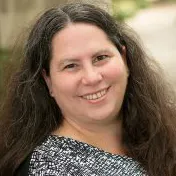
Tracey Foreman
Texas A&M Disability Services
Providing access to individuals with disabilities is a university-wide responsibility. Even student organizations need to consider accessibility and should be prepared to respond to requests for disability accommodations. Join us for an overview of common accessibility needs along with best practices, strategies and resources for student leaders and advisors to consider when planning activities and programs that are facilitated by student organizations.
Tracey has a Masters in Educational Administration from Texas A&M University and has been working in Disability Resources for over 15 years. She currently serves as an Assistant Director in TAMU Disability Resources where she is an Access Coordinator for students in the Health Science Center and the College of Geosciences. She also serves on the department leadership team; supervises the Assistive Technology Services area and participates in a variety of campus committees and liaison roles. Tracey has consulted with various student organizations on proactively planning for accessibility and how to respond to specific accessibility requests. She also serves as a student organization advisor.
Virtual Accessibility
March 9, 2022

Cynthia Kauder
Electronic and Information Resources Accessibility Coordinator
Litigation in recent years has catapulted accessibility to new heights when it comes to topics of concern within higher education. With an increasing dependence on online resources and applications, strategies to ensure compliance may seem confusing. We’ll examine ways to improve access through application and product selection as well as ways to improve access to faculty websites. Accessibility planning, best practices and documentation methods will be examined in order to create a clear path toward compliance with state and federal mandates.
Presenter Bio: Cynthia Kauder has served as the EIR Accessibility Coordinator for Texas A&M University since 2015, where she and her team utilize risk-based assessments to drive accessibility compliance. Recent affiliations include the EDUCAUSE Center for Analysis and Research (ECAR) IT Accessibility Working Group; the Texas A&M ADA Committee and the GoWeb Steering Committee; and The Texas A&M University System Council for Academic Technologies and Innovative Education (CATIE) and its Accessibility/Universal Design for Learning Task Force.
Cynthia is a graduate of Texas A&M with marketing and communications experience in the private sector. She has been involved in IT strategic planning at Texas A&M and the Texas A&M Health Science Center, where she played an essential role in directing accessibility efforts for almost five years.
Accessibility for online meetings, events and presentations
February 16, 2022
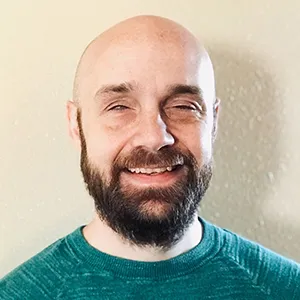
Justin Romack
Assistant Director, Disability Resources
Webinar Description: The COVID pandemic has promoted entirely new ways to communicate and collaborate with colleagues, partners and customers using tools like Zoom, Google Meet and many others. But with these new ways to share and engage comes the continued responsibility to ensure equitable access for all participants. In this session, Justin Romack with Texas A&M University’s Department of Disability Resources will discuss several practical ways for facilitating accessibility when planning, promoting and hosting online meetings, events and presentations.
Presenter Bio: Justin Romack is a Program Coordinator for Assistive Technology Services in the Department of Disability Resources at Texas A&M University. In this role, he works with students, faculty and staff to achieve equitable access to the Aggie experience for disabled students and works to educate the campus community on its shared responsibility for accessibility and inclusion. Justin enjoys unraveling the complexities of technical accessibility requirements to equip and empower leaders, communicators and creatives to make decisions and develop resources which provide access to all information, opportunities and experiences.
UDL-izing Best Practices in Professional Development Training and Information Dissemination
January 19, 2022

Dr. Nate Poling
Senior Instructional Consultant, Center for Teaching Excellence, Office of the Dean of Faculties at Texas A&M University
Webinar Description: Today’s workforce and student body are the most diverse in history. Whether it is onboarding a new employee, disseminating important information to students, or providing training sessions for the University community, it is important to design all educational or informational workshops, resources, and materials in a way so that makes them the most effective for as many people as possible. Universal Design for Learning (UDL) can play an integral role in helping to achieve this objective. UDL is a framework and approach to teaching, training, and information dissemination that focuses on maximizing the learning experience of every member of the intended audience. This interactive session will provide participants with an overview of UDL and some practical ways to implement it.
Presenter Bio: As a Senior Instructional Consultant at the Center for Teaching Excellence, Nate works closely with faculty from across the University in a wide range of areas such as student diversity and learning, inclusive teaching, interactive teaching strategies, effective small group dynamics/logistics, and the principles of Universal Design for Learning (UDL). He also works with departments on curriculum and program design/redesign projects.
Nate received his Ph.D. in Curriculum and Instruction with an emphasis in Educational Technology from the University of Florida and has a wide range of teaching experience in higher education at both the graduate and undergraduate levels. At the graduate level, he has taught courses in instructional design, project management, and educational technology. At the undergraduate level, he has taught introductory educational technology courses as well as special Honors courses in zombie literature and the popular real-time strategy game StarCraft 2.
Monday, July 26th 2021
Title: ADA 31st Celebration and Accessibility 101 Webinar
Speakers: Dr. Kristie Orr (Disability Resources) and Dr. Meagan Orsag (Center on Disability and Development)
Webinar Description: What is accessibility and why is it important? On this day we celebrate the 31st anniversary of the signing of the Americans with Disabilities Act by President George H.W. Bush. This landmark civil rights legislation prohibits discrimination on the basis of disability in employment, state and local government, public accommodations, commercial facilities, transportation, and telecommunications. This presentation will explore what accessibility looks like on the Texas A&M campus and how you can help provide an equitable experience for disabled individuals on our campus.
Moderators
- Dr. Meagan Orsag (CDD)
- Dr. Kriste Orr (Disability Resources)
About the Presenters
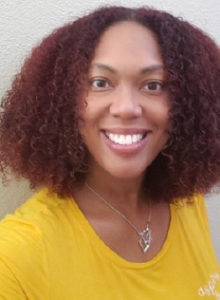 Shaunta Singer, PhD, AgriLife Extension
Shaunta Singer, PhD, AgriLife Extension
Dr. Singer has been in the field of Special Education for 20 years. I began my career in the K-12 setting as an elementary special education teacher in a DC Public School. For the next twelve years, I served as a department and Individual Educational Program (IEP) Chairperson, Director of Special Education, and a district level Coordinator for Instruction, Autism, and Alt-Assessments. Within Texas, I have served as a regional education specialist and am currently an Assistant Professor &Extension Specialist at Texas A & M University, AgriLife Extension where I support individuals with disabilities and those who support them while encouraging Universal Design for Learning principles. I have been in Higher Education as an adjunct or faculty member for eleven years. Since learning about UDL in 2010, I have dedicated my research, teaching and consultation to spreading knowledge of what and how UDL supports teaching and learning. Within a few short weeks, I will become an employee of CAST, where UDL was conceptualized and will continue my work in supporting educators with their development, understanding, and utilization of UDL. Personally, I am the mother of two; ages 3 and 5, and the wife of a faculty administrator in the College and Education and Human Development here at Texas A & M.
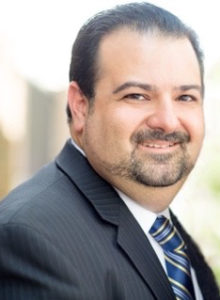 Andrew A. Barna, Jr., Division of Human Resources and Organizational Effectiveness
Andrew A. Barna, Jr., Division of Human Resources and Organizational Effectiveness
Andrew is the Director of Employee Relations. Employee Relations is department within the Division of Human Resources and Organizational Effectiveness. Employee Relations department provides strategic human resource management and support to academic and administrative departments within the University to ensure compliance with all Federal, State, local laws and all University rules, regulations, and procedures. The department is responsible for handling all staff ADA Accommodations, Disciplinary matters (terminations), Appeals/complaints, Alternate Work locations, administering the Family Medical Leave Act (FMLA), policy guidance, staff arrests, drug testing, reductions-in-force (RIFs), Workers’ Compensation, and Unemployment Claims.
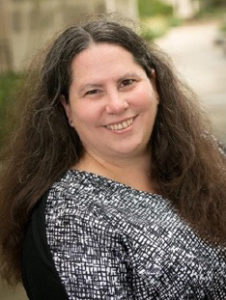 Tracey Forman, TAMU Disability Resources
Tracey Forman, TAMU Disability Resources
Tracey has a Masters in Educational Administration from Texas A&M University and has been working in Disability Resources for over 15 years. She currently serves as an Assistant Director in TAMU Disability Resources where she is an Access Coordinator for students in the Health Science Center and the College of Geosciences. She also serves on the department leadership team; supervises the Assistive Technology Services area and participates in a variety of campus committees and liaison roles. Tracey has consulted with various student organizations on proactively planning for accessibility and how to respond to specific accessibility requests. She also serves as a student organization advisor.
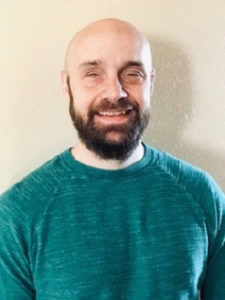 Justin Romack, TAMU Disability Resources
Justin Romack, TAMU Disability Resources
Justin Romack is a Program Coordinator for Assistive Technology Services in the Department of Disability Resources at Texas A&M University. In this role, he works with students, faculty and staff to achieve equitable access to the Aggie experience for disabled students and works to educate the campus community on its shared responsibility for accessibility and inclusion. Justin enjoys unraveling the complexities of technical accessibility requirements to equip and empower leaders, communicators and creatives to make decisions and develop resources which provide access to all information, opportunities and experiences.
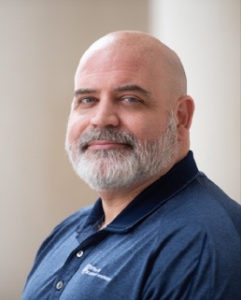 Dr. Travis Lee Irby, Office for Academic Innovation
Dr. Travis Lee Irby, Office for Academic Innovation
Travis has been an instructional designer with the Office for Academic Innovation since 2019. He was previously an instructional designer at Austin Community College. Travis was also an instructional designer at Texas State University. He has taught both online and face-to-face classes. He also worked at the University of Texas at San Antonio and the University of Texas at Austin supporting student accessibility. Travis is interested in fostering inclusive online environments, and instruction that cultivates student success.
Education:
- Ph.D., Agricultural Leadership, Education, and Communications, Texas A&M University, College Station, Texas
- M.Ed., Special Education, University of Texas at Austin, Austin, Texas
- M.A. English, Technical Communication, Texas State University, San Marcos, Texas
- B.S. Journalism, Texas A&M University, College Station, Texas
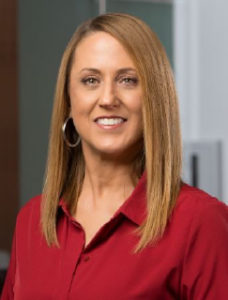 Cynthia Kauder, Electronic and Information Resources
Cynthia Kauder, Electronic and Information Resources
Cynthia Kauder has served as the EIR Accessibility Coordinator for Texas A&M University since 2015, where she and her team utilize risk-based assessments to drive accessibility compliance. Recent affiliations include the EDUCAUSE Center for Analysis and Research (ECAR) IT Accessibility Working Group; the Texas A&M ADA Committee and the GoWeb Steering Committee; and The Texas A&M University System Council for Academic Technologies and Innovative Education (CATIE) and its Accessibility/Universal Design for Learning Task Force.
Cynthia is a graduate of Texas A&M with marketing and communications experience in the private sector. She has been involved in IT strategic planning at Texas A&M and the Texas A&M Health Science Center, where she played an essential role in directing accessibility efforts for almost five years.
Dr. Amanda Kraus, The University of Arizona
Originally from the suburbs of New York City, Dr. Amanda Kraus has lived in Tucson and worked at University of Arizona for nearly 20 years. She serves as Assistant Vice President for Campus Life, and is Executive Director for Disability Resources and ADA/504 Compliance Officer. UA’s Disability Resource Center is one of the largest in the nation, and considered an international model of progressive service delivery, uniquely positioned to approach campus access proactively and systemically. Dr. Kraus is also Associate Professor of Practice in Higher Education where she coordinates the MA program and teaches courses on student services and disability in higher education.
Dr. Kraus is President of the Association of Higher Education and Disability (AHEAD) Board of Directors and previously chaired its standing committee for diversity. She has had the privilege of speaking and consulting with campuses such as Singapore Management University, Duke University, and Wake Forest University. She was recently invited to join a delegation convened by the US Department of State to engage in dialogue on disability access in education and employment in Beijing, China.
Dr. Kraus earned her MA and Ph.D. at the University of Arizona in Higher Education.

